2025 LOCAL
ADAPTATION
CHAMPIONS AWARDS
WATCH THE 2025 LOCAL ADAPTATION CHAMPIONS AWARD CEREMONY
MEET THE WINNERS
2025 JURY
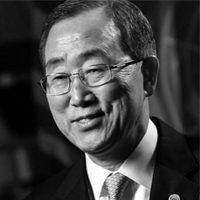
Ban Ki-moon was the 8th Secretary-General of the United Nations. His priorities have been to mobilize world leaders around a set of new global challenges, from climate change and economic upheaval to pandemics and increasing pressures involving food, energy, and water.
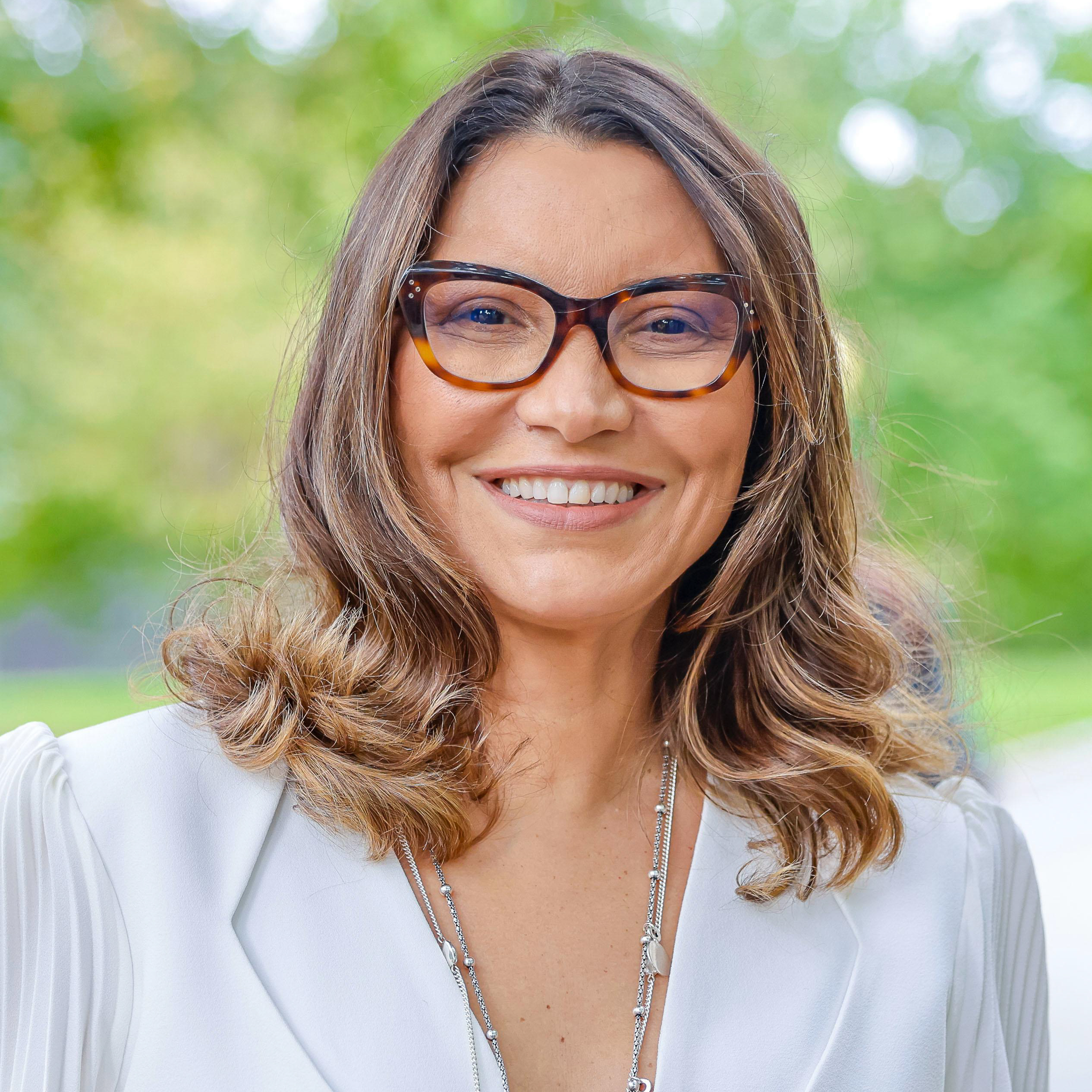
Janja Lula da Silva is a Brazilian sociologist who specializes in history and has an MBA in social management and sustainability. A member of the Workers' Party since her youth, she is also the wife of the current President of Brazil, Lula da Silva. She has worked for decades on social projects on gender, income generation, and sustainable development at two of Brazil's largest energy companies, Itaipu Binacional and Eletrobrás. She currently promotes public policies to combat gender violence, food insecurity, and hunger, and to increase women's political participation. She is an ambassador for school feeding and the Sustainable Development Goals in Brazil, and currently serves as the Special Envoy for Women of COP30.
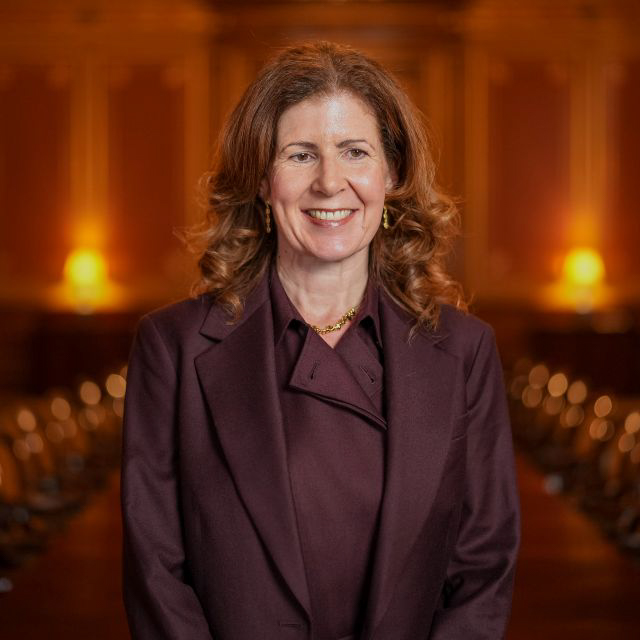
Baroness Chapman was appointed Minister of State (International Development and Africa) in the Foreign, Commonwealth & Development Office in September 2025. Baroness Chapman has held previous senior roles in the Foreign, Commonwealth & Development Office. On 28 February 2025 she was appointed Minister of State (International Development, Latin America and Caribbean). Before that she was Parliamentary Under-Secretary of State at the Foreign, Commonwealth and Development Office between 18 July 2024 and 28 February 2025.

Åsmund Grøver Aukrust is Norway's Minister of International Development and is responsible for international development efforts in countries outside the OSCE, the Middle East and Afghanistan. He is also responsible for Norwegian humanitarian efforts, development cooperation under the auspices of the UN system, the World Bank, the regional development banks and other global funds and programmes. In addition, he is Minister for Nordic Co-operation and responsible for Norad, Norec and Norfund.
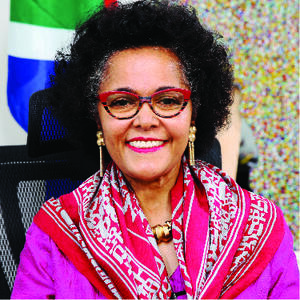
Nardos Bekele-Thomas has been the Chief Executive Officer for the Africa Union Development Agency-New Partnerships for Africa’s Development (AUDA- NEPAD) since May 2022. She previously served as the Resident Coordinator of the United Nations (UN) and Resident Representative of the United Nations Development Program (UNDP) in South Africa. In 2016 she served as the Senior Director of the Office of the former UN Secretary-General, H.E. Ban Ki-Moon, in charge of the overall management of the Office of the Secretary-General, the Office of the Chef de Cabinet and that of the Deputy Secretary-General.

Prof. Patrick V. Verkooijen is the President and CEO of the Global Center on Adaptation, and he also serves as the Chancellor of the University of Nairobi. Prof. Verkooijen has previously served as the Ban Ki-moon Chair on Climate Adaptation Governance at the University of Groningen and the World Bank Group Special Representative on Climate Change.
Meet the 2025 Finalists
EQUINOCT Community Sourced Modelling Solutions
INDIA
Fairaction Charity Foundation
NIGERIA
Preserving Legacies
GLOBAL
University of Reading
MADAGASCAR
Water, Environment, Land and Livelihood Labs
INDIA
Association of People Living with HIV/AIDS
LAO PEOPLE'S DEMOCRATIC REPUBLIC
Foundation for Tomorrow
KENYA
Humanitarian Action for Africa
DEMOCRATIC REPUBLIC OF THE CONGO
SalCare
SIERRA LEONE
Research Unit in Applied Microbiology and Pharmacology of Natural Substances, University of Abomey-Calavi
BENIN
Nature Environment & Wildlife Society
INDIA
The Odisha Paryavaran Sanrakshan Abhiyan Trust
INDIA
Save Mau Forest
KENYA
Uttaran
BANGLADESH
Water Fund for Lima and Callao - Aquafondo
PERU
AJSA India
INDIA
S M Sehgal Foundation
INDIA
Solar Freeze Inc.
KENYA
Society for the Promotion of Area Resource Centers
INDIA
United Nations Development Programme
BANGLADESH
The GCA Local Adaptation Champions Awards spotlight and reward innovative, exemplary, inspiring, and scalable locally led efforts that address the impacts of climate change and build effective climate resilience among the most vulnerable communities, sections of society, and individuals who are at the frontlines of the greatest existential threat faced by humankind.
2025 AWARD CATEGORIES
NATURE-BASED SOLUTIONS
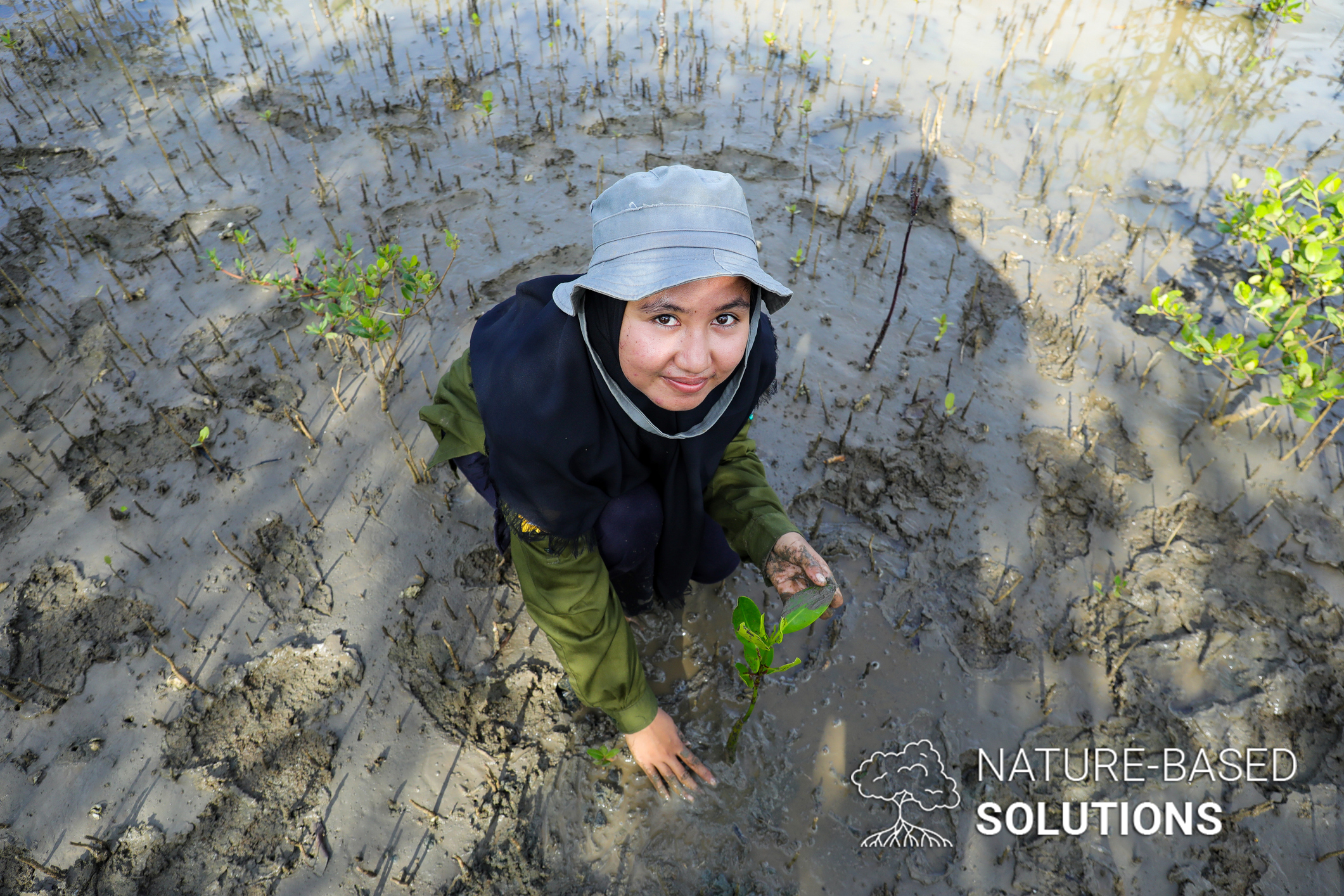
This category honors locally designed, community-led initiatives that use nature-based solutions to protect critical local infrastructure—such as water, energy, and transport systems—especially those vital to everyday life. Proposed solutions must be community-owned and managed, strengthen ecosystem services, and deliver climate resilience while respecting local governance and knowledge systems.
We invite applications from women-led groups, non-governmental organizations (local, national, and international), universities, research institutes, think tanks, governments, and entrepreneurship support organizations.
WOMEN'S LIVELIHOODS
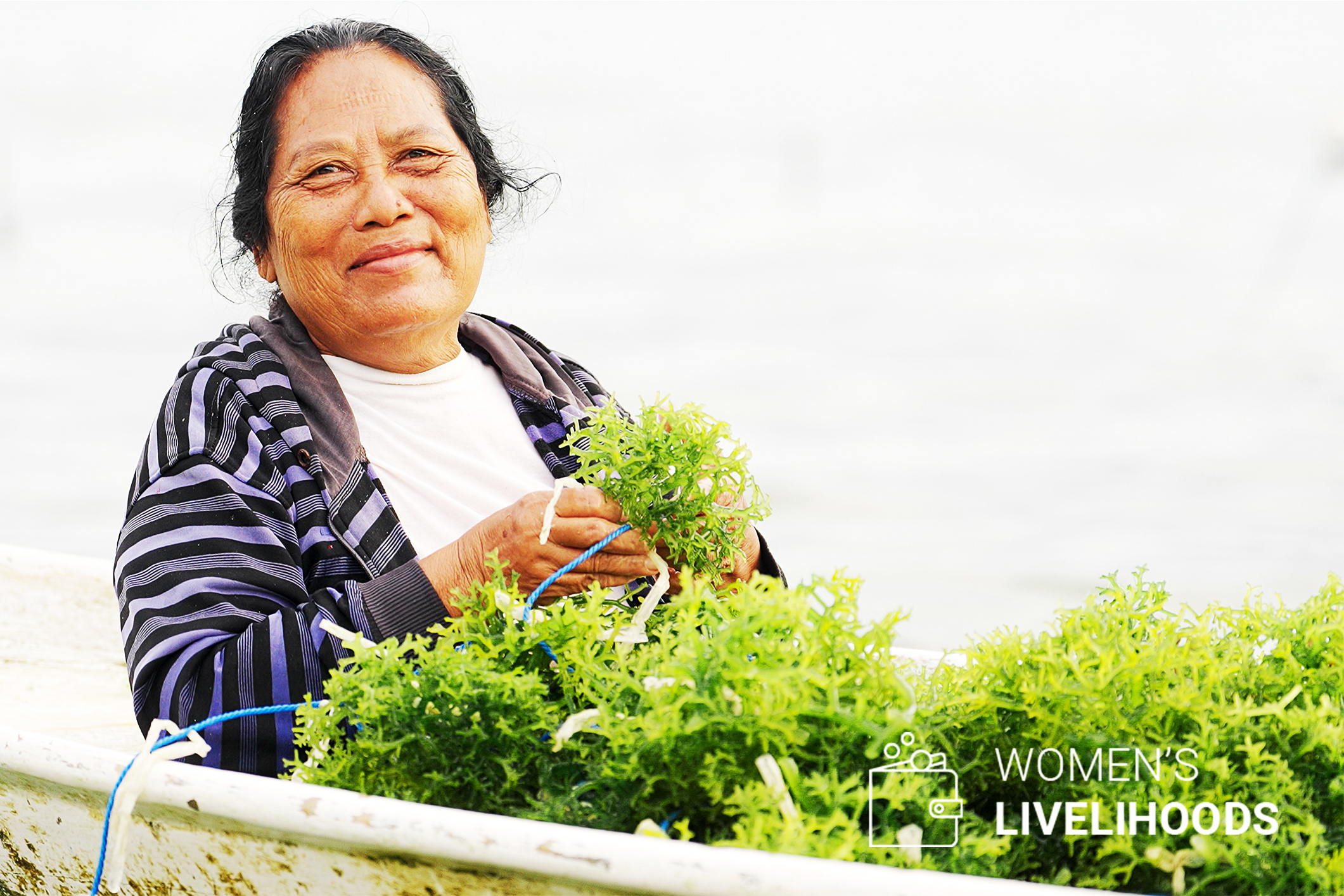
This category recognizes community-led initiatives that enhance women’s entrepreneurship, economic empowerment and resilience in the face of climate change. Eligible entries should demonstrate how they improve access to climate-resilient jobs, finance, skills, markets, and assets for women—particularly those from marginalized and disadvantaged groups. Initiatives must also actively challenge discriminatory norms and structural barriers that undermine women’s well-being before, during, and after climate-related shocks and stressors.
We invite applications from women-led groups, non-governmental organizations (local, national, and international), universities, research institutes, think tanks, governments, and entrepreneurship support organizations.
CITIZEN SCIENCE
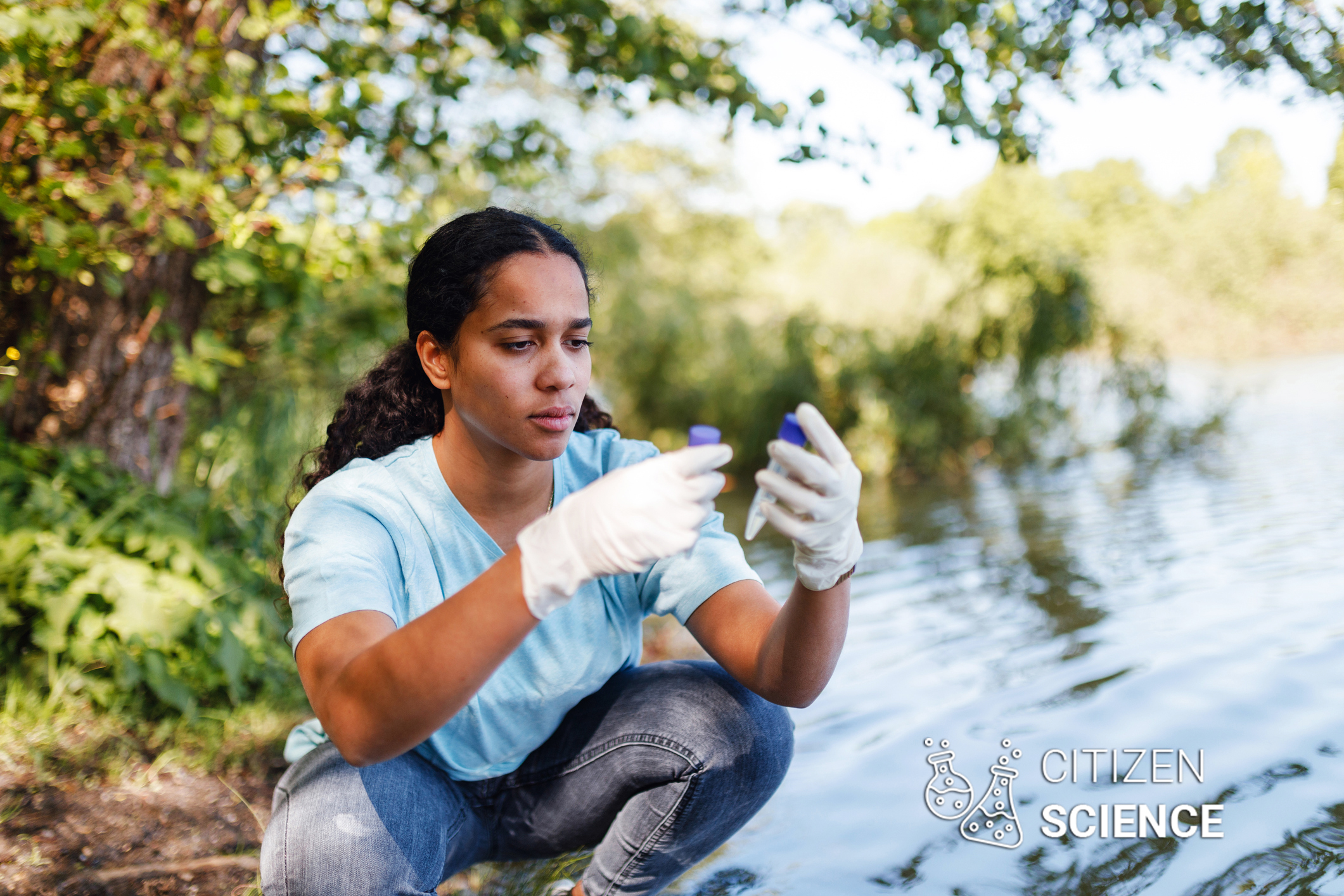
This category celebrates community-driven research initiatives that are needs-based, solutions-oriented, and have measurable impact on climate-vulnerable populations. Strong entries engage local people as equal partners in designing and conducting research, incorporate traditional and local knowledge, and generate practical outcomes that inform local planning, decision-making, or adaptation actions. Emphasis is placed on bottom-up approaches that depart from traditional, top-down research models.
We invite applications from women-led groups, non-governmental organizations (local, national, and international), universities, research institutes, think tanks, governments, and entrepreneurship support organizations.
HEALTH
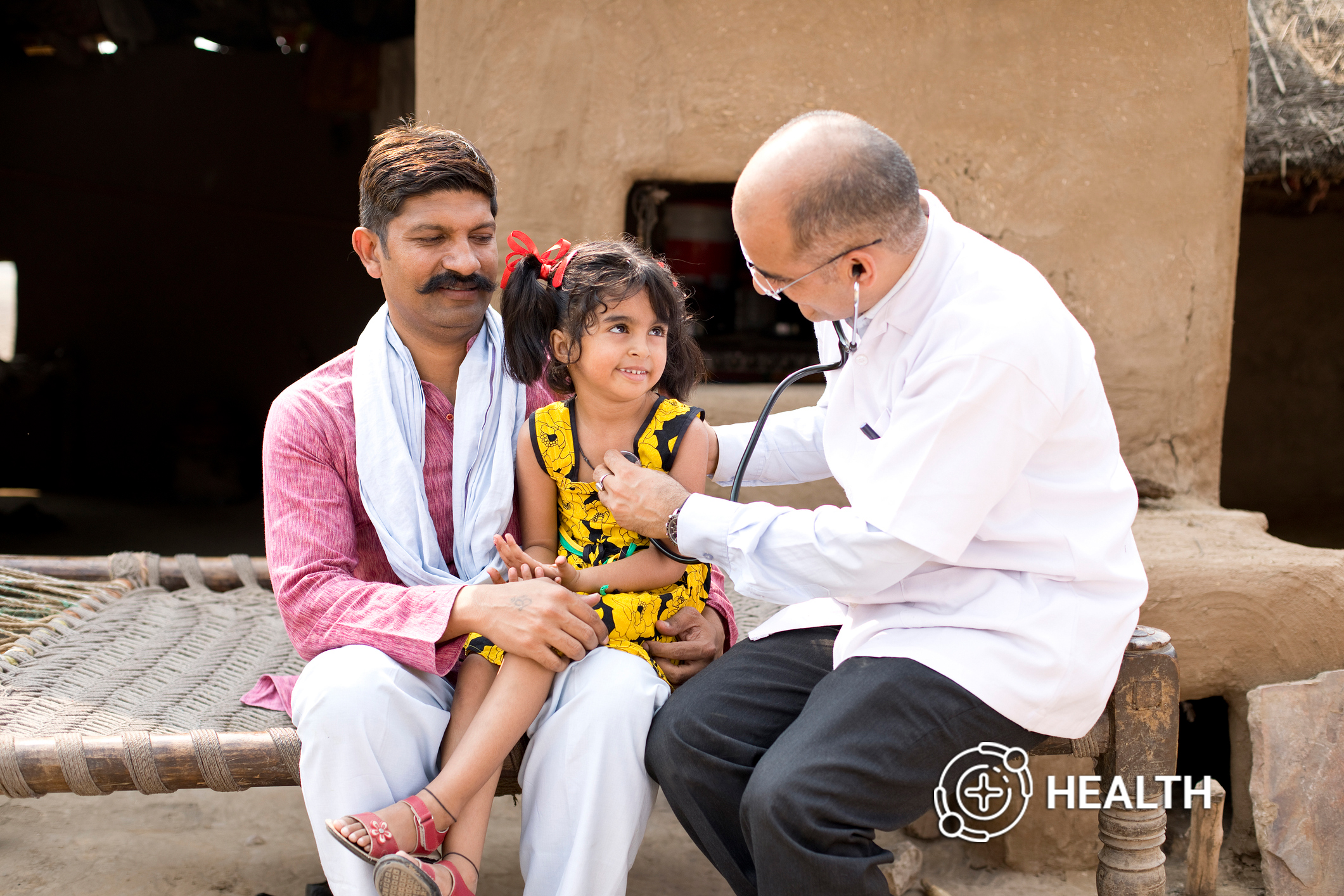
This category recognizes locally led initiatives that strengthen community health and psychosocial resilience in response to climate-related stressors by (1) enhancing people’s agency and coping mechanisms for dealing with slow-onset or compounding climate impacts; or (2) improving equitable access to health services, particularly for women, youth, persons with disabilities, displaced populations, indigenous peoples, and marginalized ethnic groups during and after climate shocks.
We invite applications from micro, small and medium enterprises (MSMEs) with core business models focused on local climate adaptation initiatives, women-led businesses, tech and non-tech enterprises, locally grown corporates or organizations promoting local climate adaptation along supply chains.
2025 LOCAL ADAPTATION CHAMPIONS AWARDS
Only applications that meet all five of the following criteria will be considered for the 2025 competition:
The intervention is being implemented and results are demonstrable.
The intervention addresses adaptation to climate change impact or builds resilience against climate impacts.
The intervention aims at the most vulnerable communities, sections of society, and individuals experiencing climate impacts.
The intervention is locally led, adhering to one or more Principles of Locally Led Adaptation.
The call for applications was open from 6 June to 16 July 2025.
For more information about eligibility criteria, the selection process and more, please refer to the 2025 Applicants' Guidebook.
2025 TECHNICAL ADVISORY GROUP
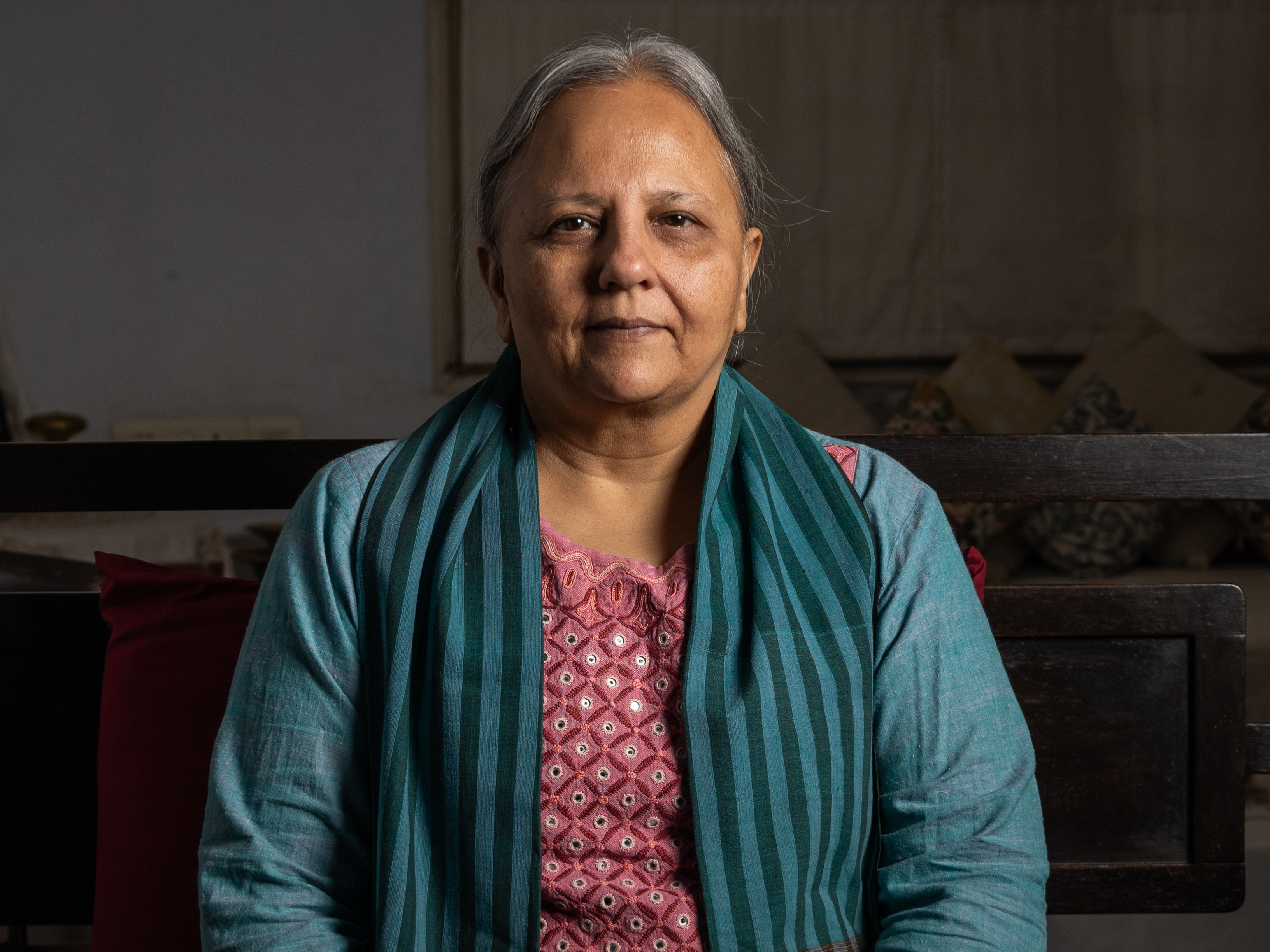
Reema is the Director of Self Employed Women's Association (SEWA) and has been working with them for more than 39 years. During this time, she expanded SEWA's membership to over 3.2 million members and has made it the single largest union of informal sector women workers.
Reema oversees 4,813 self-help groups, 160 co-operatives and 15 economic federations across 18 states in India and seven South-Asian countries. All of them focus on women’s economic empowerment by building women-owned enterprises and women-led supply chains, introducing modern ICT-based tools and facilitating Green-Energy initiatives and livelihoods. Reema is also a member of the World Bank's Advisory committee and a gender lead in the working group for the UN's Food System Summit's working group.
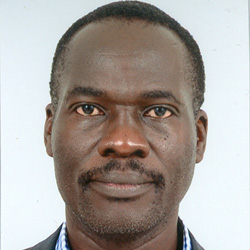
Luther Bois Anukur is the Regional Director for Eastern and Southern Africa Regional Office (ESARO) for the International Union for the Conservation of Nature (IUCN), which is comprised of 24 countries in the Horn of Africa, East Africa and Southern Africa and the Western Indian Ocean. Prior to joining IUCN, he served as the Deputy Regional Director for Eastern and Southern Africa with Plan International, Regional Director for Panos Eastern Africa, Country Director World Vision International and Programme Director with ChildFund International.
Luther has extensive experience in programme development and management, operational research and applied policy work on governance, organizational development, institutional capacity building, public policy formulation and advocacy across a range of sectors engaging widely with diverse groups of practitioners and policy makers.
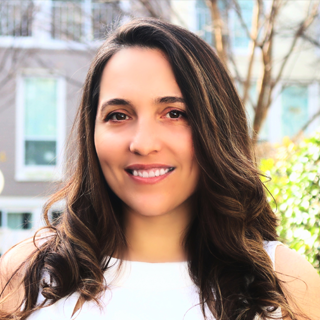
Saliha is the Programming and Innovation Unit Lead and Senior Climate Change Specialist at the Adaptation Fund, where she oversees the programming of over half a billion dollars in funding annually and leads the policy work related to the administration of climate finance for adaptation, including innovation and locally led action. Previously, she worked on adaptation, environmental, international waters, and integrated coastal zone management issues with the Global Environment Facility and The World Bank for over a decade.
She has also supported the World Bank’s MENA climate change beam in devising and implementing the first corporate climate change strategy for the region, and the Global Facility for Disaster Risk Reduction in support of mainstreaming climate change considerations in ex-ante disaster risk management. She is a co-author of a number of books, studies, and reports on climate change adaptation and other environmental issues, including “Time to Adapt: Insights from the Global Environment Facility’s Experience on Adaptation to Climate Change.” She is a recipient of several awards and distinctions and was recognized as one of “100 Women Leaders in Energy and Climate Change” by the White House in 2013.
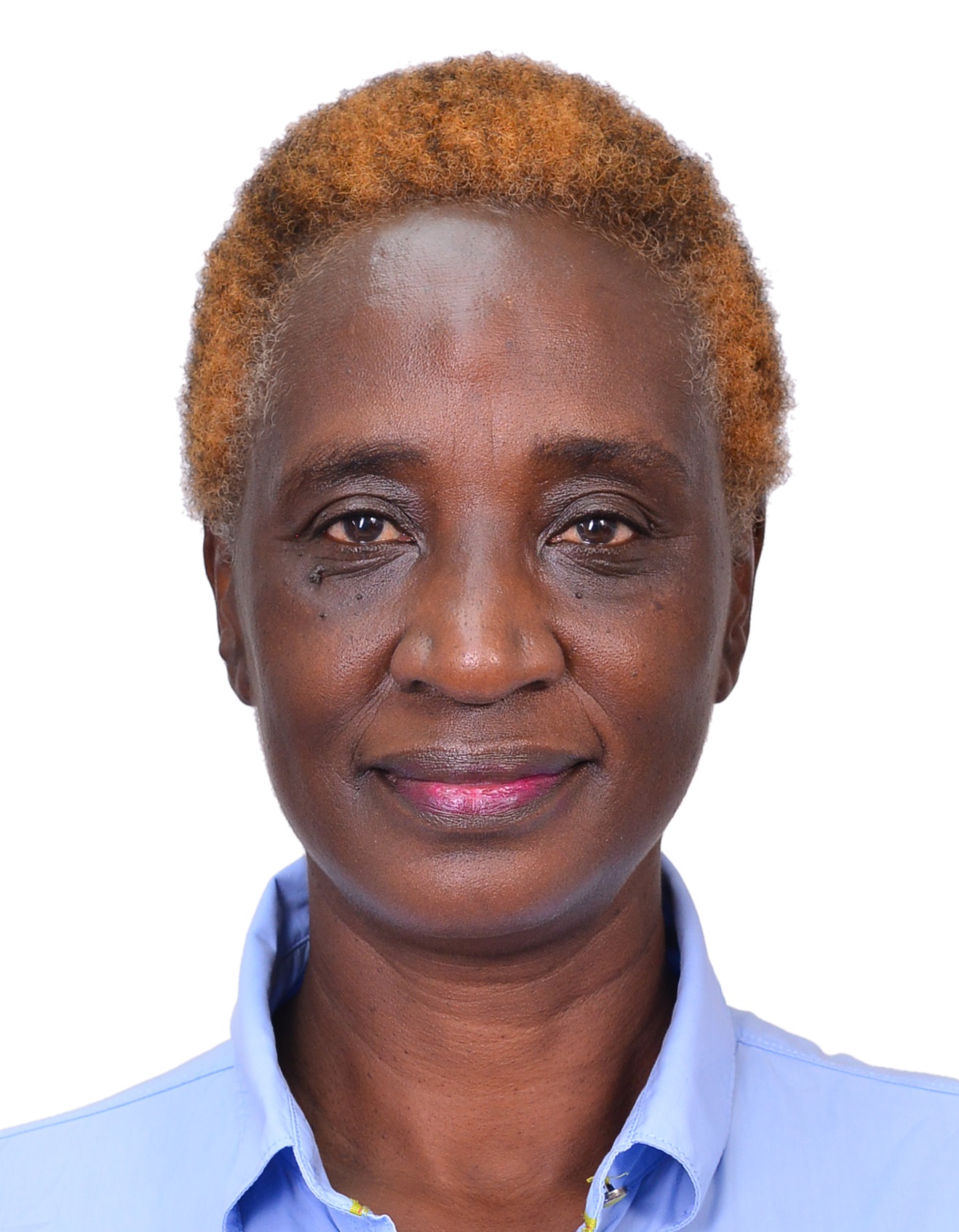
Jane Weru is a lawyer by profession and holds a Master’s degree in NGO Management from the London School of Economics. She is the Executive Director and a founding member of Akiba Mashinani Trust (AMT), a non-profit organization working to develop innovative, community-led solutions to housing and land tenure challenges faced by the urban poor in Kenya.
With over 30 years of experience, Jane has facilitated multi-stakeholder partnerships aimed at addressing the needs of marginalized urban communities. She has played a key role in numerous public interest litigations to prevent forced evictions and violent demolitions, while also influencing policy processes to safeguard the land tenure rights of people living in informal settlements.
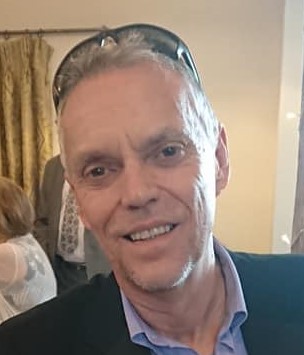
Vincent is Climate Resilience Advisor at the United Kingdom Foreign, Commonwealth and Development Office. In this role, he leads the UK Government's policy on locally led adaptation and serves as Lead Advisor on development of the LIFE AR initiative (Least Developed Countries Initiative for Effective Adaptation and Resilience).
He has 44 years professional experience, of which 15 years are in the field in Africa, the Middle East, South Asia, Papua New Guinea and Albania. He held significant senior advisory roles in DFID/FCDO and worked closed throughout his career with national governments, non-governmental organizations, the United Nations, the European Union and as an independent consultant.
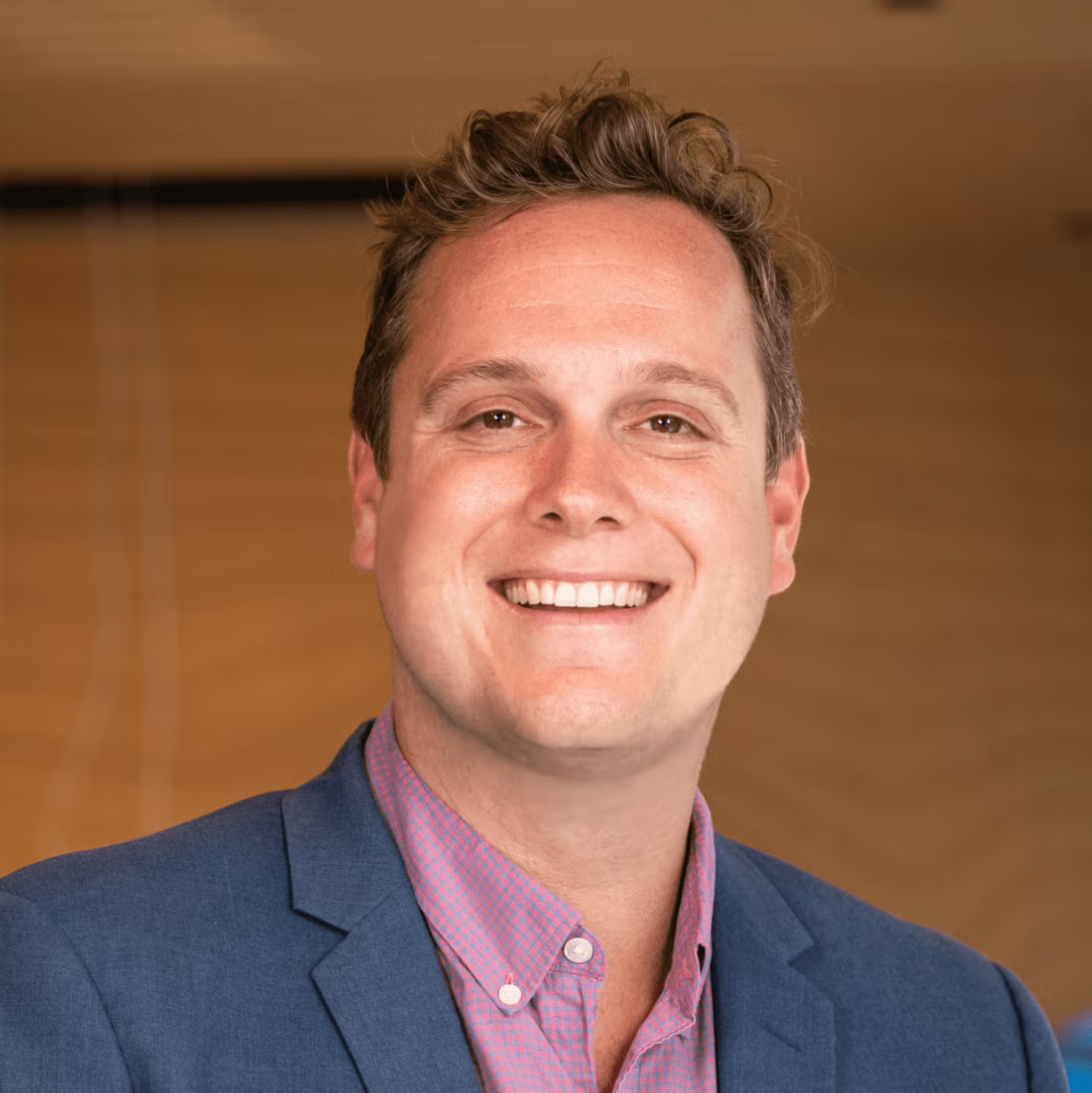
Greg Kuzmak joined The Rockefeller Foundation in May 2020 and serves as a Director within the Health Initiative, leading the Climate and Health Financing Initiative, as well as digital health partnerships. Previously, he managed grant portfolios within the Precision Public Health Initiative and the Global Vaccination Initiative to support proliferation and utilization of digital technologies that improve health service delivery, and ultimately health outcomes.
Greg has also previously managed health initiatives and worked with the South African Ministry of Health, the Commonwealth Fund, Clinton Health Access Initiative, Johnson & Johnson Global Public Health, and ICAP at Columbia University's Mailman School of Public Health. In South America and Sub-Saharan Africa, Greg has managed and facilitated multi-million-dollar U.S. government-funded health and economic development programs that sought to improve livelihoods and reduce mortality.
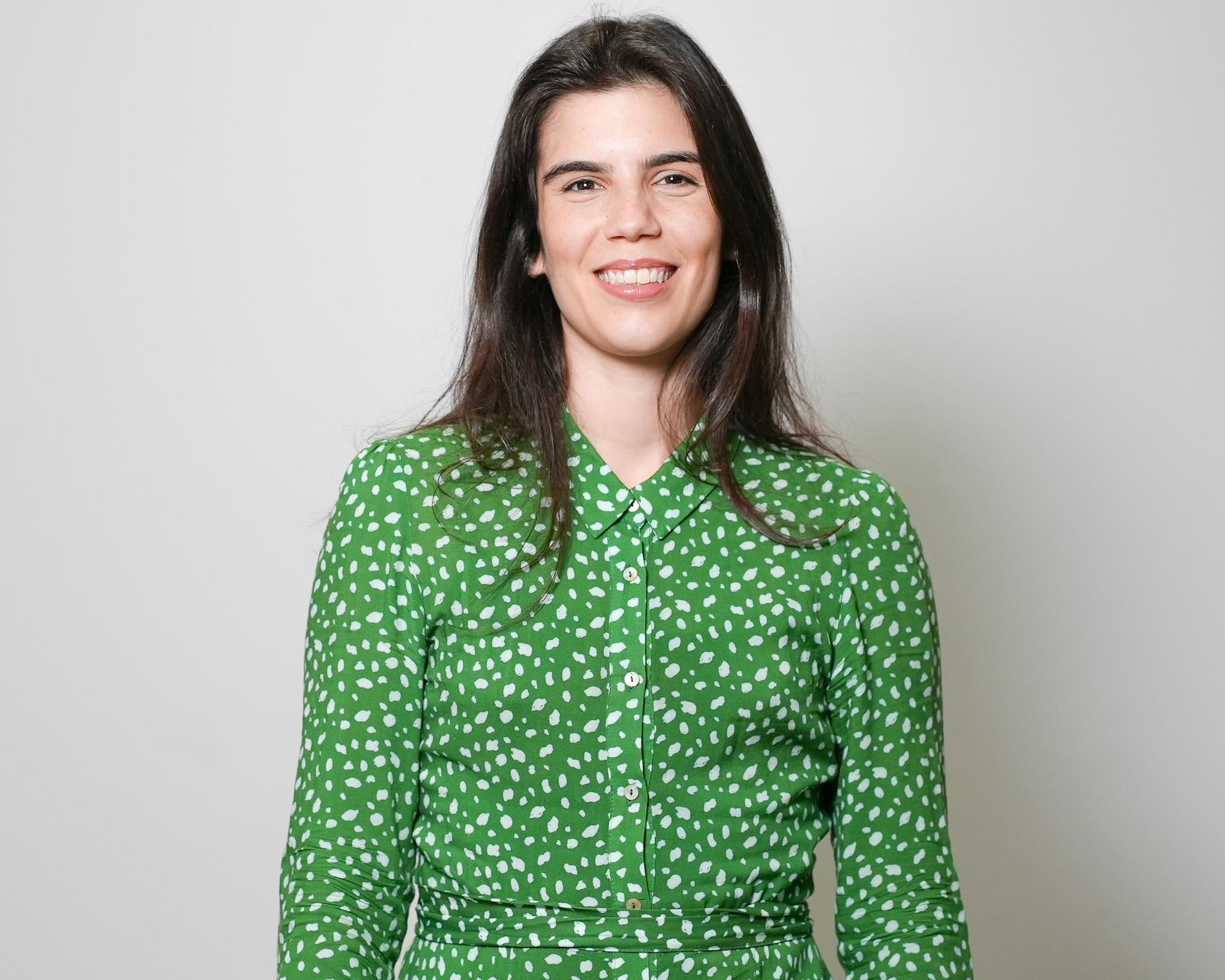
Dr. Giovanna Kuele is Program Manager for International Cooperation and COP30 Strategy Lead at the Igarapé Institute, an independent think-and-do tank focused on the areas of security, nature, and climate. She leads the International Cooperation Program, which bridges locally rooted initiatives with multilateral processes to amplify impact, cultivate strategic partnerships, and advance inclusive, transparent, and accountable global governance. In this role, she supported the UN High‑Level Advisory Board on Effective Multilateralism and the World Economic Forum’s Global Future Council on the Future of Nature and Security, and coordinated civil society consultations for the UN Secretary‑General’s Our Common Agenda. Dr. Kuele holds a PhD in Political Science from the Graduate Center at the City University of New York, and earned her M.A. and B.A. in International Relations at the Federal University of Rio Grande do Sul, Brazil.
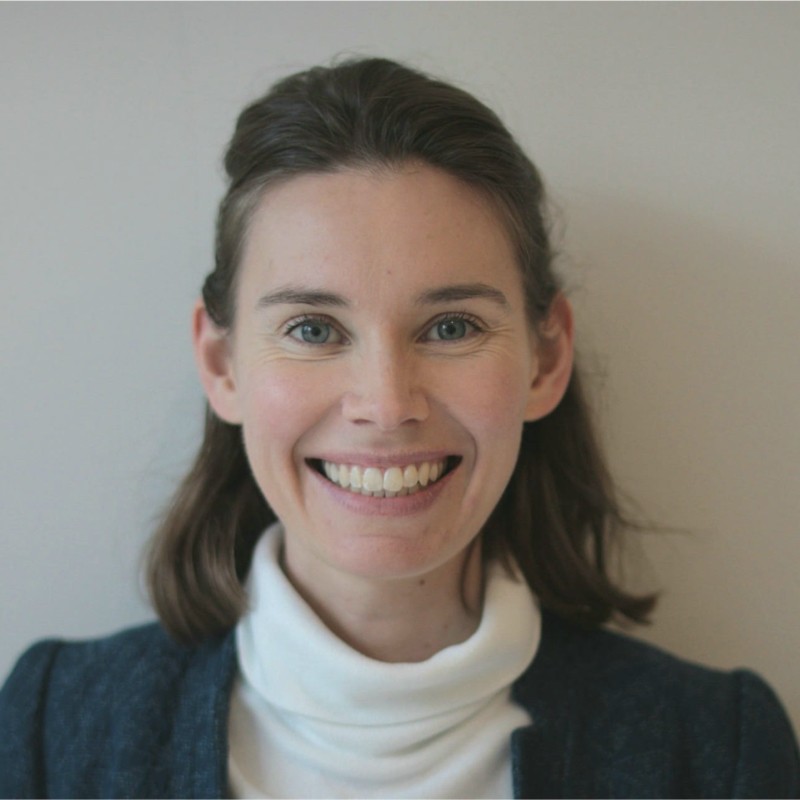
Katie is a Climate Adaptation Policy Lead in the Foreign, Commonwealth and Development Office (FCDO) of the United Kingdom. She has a BSc in Environmental Science and a MSc in Environment and Development, alongside 8+ years of experience working in international development for the Department for International Development (now FCDO). Katie has focused her career on climate change mitigation and adaptation. Her current focus is on locally led adaptation, but she has had roles spanning policy development, programme management and she has also worked as a Ministerial Private Secretary.
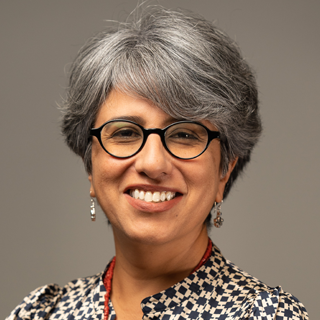
Anju is the Global Lead on Locally Led Adaptation at the Global Center on Adaptation. She has been Deputy Director of Oxford Climate Policy, and Head of the Policy and Publications Unit of the European Capacity Building Initiative. She is an Associate with the Stockholm Environment Institute and has been a Consultant with the International Institute for Sustainable Development and Visiting Fellow at the International Institute for Environment and Development. Anju has previously worked with the UN Environment Programme in Kenya, Oxfam GB in the UK, and the Centre for Science and Environment in India. She has also worked as a Consultant for a number of international organizations, including the Secretariat of the UN Framework Convention on Climate Change and the UN Development Program.